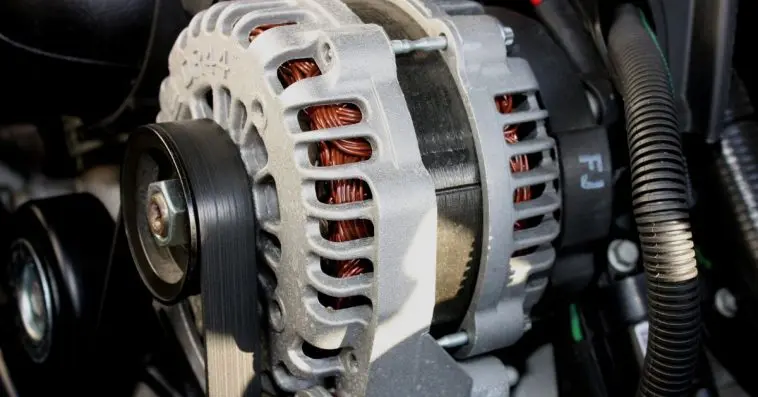Have you ever happened to find yourself in a situation where your car failed to start, and you were stuck on the road? Well, I did and it’s terrifying!
I discovered that it was my alternator that betrayed me, and I had no other choice but to replace it. The first thing that came to my mind was how much it would cost.
If you are in a similar situation and you’ve been wondering the same thing, this article is for you.
TABLE OF CONTENTS
Repair Cost
Car experts claim that it is a challenging task to specify a cost for replacing an alternator as it is not fixed.
It will cost you approximately between $150 to about $ 400 to replace an alternator’s components, and between $500 – $800 will be your total cost, including labor and factoring in components.
Still, it depends on many factors such as the model of the car you drive, the place from where you will buy an alternator, and lastly, the condition of an alternator.
Car mechanics can determine the cost by checking the amperage your car will need to charge the battery and power other components.
Signs You Need to Replace It
The car will indicate in different ways depending on the key factors which cause the problems.
If your car is causing a problem in getting started or suspecting that your car’s alternator is not in good condition, you should consider changing it.
If you observe any signs from the following, head toward your car mechanic to change the alternator.
1. Noises From The Engine
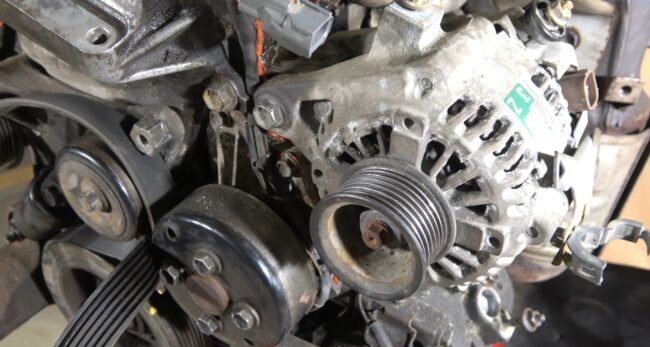
An alternator’s spinning parts might be restricted, which causes the engine to squeal or make some weird noises.
Try to notice which part is the source of the noise. Deeply examine and remember the sounds you hear to tell your mechanic about what is wrong with your car.
The instructions about the noise coming from the engine will give a mechanic direction to work quickly.
2. The Vehicle Not Starting
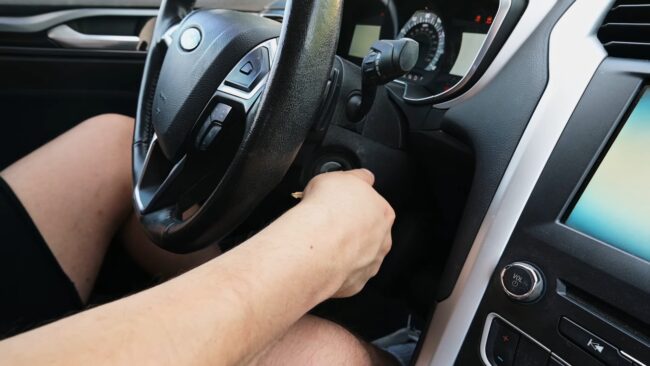
Starting a vehicle is not the task of an alternator; the battery does this. What the alternator does is charge the battery as the car is running.
If the battery is dead, it means there might be a problem with the alternator, and the vehicle will not start.
You cannot assume by yourself whether the battery has some faults or the alternator itself until you check it.
3. Dashboard Lights/Warning Signal
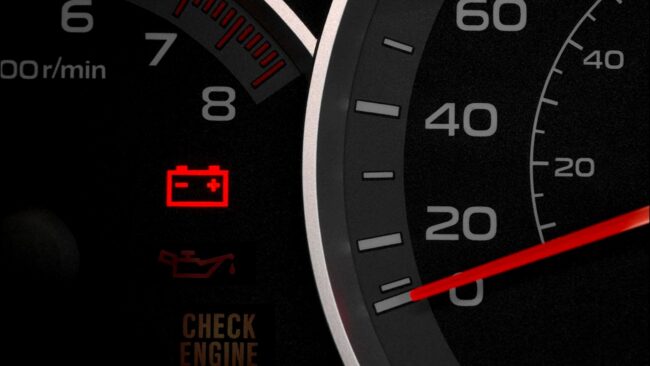
Due to an insufficient power supply, you might notice that your vehicle’s headlights are dimmer than usual because of an uncharged battery.
You may also notice some warning dashboard signals that include the battery light, ALT, or ‘check engine lights on your vehicle’s dashboard.
When the electricity is not properly delivered to the Engine Control Unit (ECU), the brain of the engine is unable to think properly, and the incorrect signals are sent to the car’s body (the same happens with humans when we are hungry, all we can think about is snacks).
4. Electrical System Fails To Function
The electrical power provided by the alternator is responsible for the vehicle’s electrical system’s proper functioning.
The accessories like power mirrors and windows, headlights, radio or entertainment, air conditioner, etc., are powered by the alternator.
If you notice the failure or malfunction of any of these electrical components, the alternator might be the reason.
Replacement Process
Step 1: The operation of the charging system is tested and inspected. For this purpose, a voltmeter is used that reads the number of volts produced by the alternator of a vehicle.
Step 2: The battery is disconnected.
Step 3: The mechanic removes the drive belt as well as the alternator.
Step 4: A new drive belt and alternator are installed.
Step 5: The battery is reconnected.
Step 6: The volts (output) of the alternator are rechecked to ensure that it is functioning properly. A road test might also be performed.
Before You Replace It, Test It!
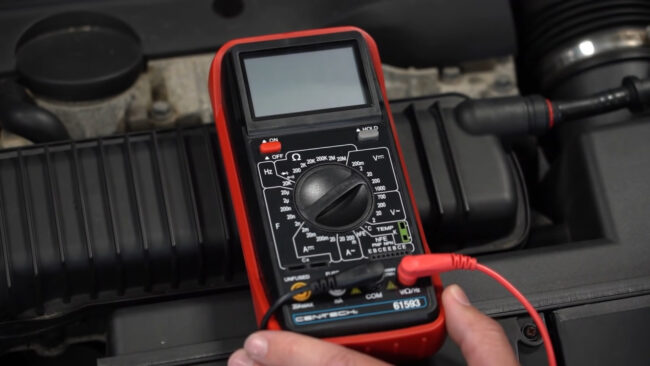
Testing an alternator’s power is important before taking it off and replacing it with a new one. You can save yourself some money and time!
- Turn off your car’s engine and open the hood to get access to the battery. Locate the alternator of your vehicle and check that the drive belt is not loose.
- Pivot your multimeter on the 20V reading.
- Turn on your vehicle’s engine and recheck the drive belt if functioning (spinning) properly.
- Join the +ve probe of your multimeter to the +ve terminal of the battery and the -ve probe of the multimeter to the battery terminal.
Note the reading on the multimeter. If your alternator has no faults, the multimeter will give a reading between 13.8V to 14.2V.
But suppose the multimeter is giving a reading greater than 14.2V ( typically higher than 15V).
In that case, there might be some defects in the alternator, and you should replace it before it causes any problems.
Similarly, if the reading is below 13.8V, this is mainly because the alternator can not provide sufficient power to the battery, so it needs a replacement.
A typical battery carries a charge of 12V, so you should not charge the battery intensively over 12V as it can cause serious problems.
Check this out:
FAQs
How Long Does It Take To Replace An Alternator?
If a mechanic replaces the alternator, it may take about 2-3 hours or so. But it can take a lot more time if you decide to change it yourself.
What Is The Average Lifespan Of An Alternator?
An alternator’s average lifespan is about 5-8 years, depending on how often and what model you drive.
The lifespan also depends on the factor of how many miles you have driven. An alternator can drive about 60,000 – 150,000 miles.
New and modern cars, especially those from reliable companies such as Honda, Lexus, and Toyota, are at the higher end of this limit, while old models are at the lower end of this range.
Can driving habits affect the lifespan of my alternator?
Yes, they can. Frequent short trips that don’t allow the alternator to fully charge the battery or using power-intensive accessories can lead to more wear and tear.
Is it possible to extend the life of my alternator?
Regular maintenance, such as checking the tension of the alternator belt and ensuring the battery is in good condition, can help extend the life of your alternator.
Are there any environmental conditions that can affect my alternator’s performance?
Extreme temperatures, both hot and cold, can affect the performance of your alternator. High temperatures can lead to overheating, while cold temperatures can make it harder for the alternator to charge the battery efficiently.
If my alternator fails, can I still drive my car?
If your alternator fails, your car might still run on the battery’s reserve power for a short time. However, this is not advisable as it can lead to a complete loss of power and vehicle shutdown while driving.
Summary
Replacing an alternator is an essential repair that ensures your vehicle continues to run smoothly. While the cost can vary based on your car’s make and model, as well as labor charges, it’s an investment in your vehicle’s health and your peace of mind.
Think of it as a charge to your car’s battery life and your journey’s continuity. By understanding the factors that influence the cost, you can budget accordingly and avoid the surprise of a powerless car at an inconvenient time.
Remember, a well-functioning alternator is the powerhouse behind your vehicle’s electrical system, and keeping it in check is key to a reliable ride.


